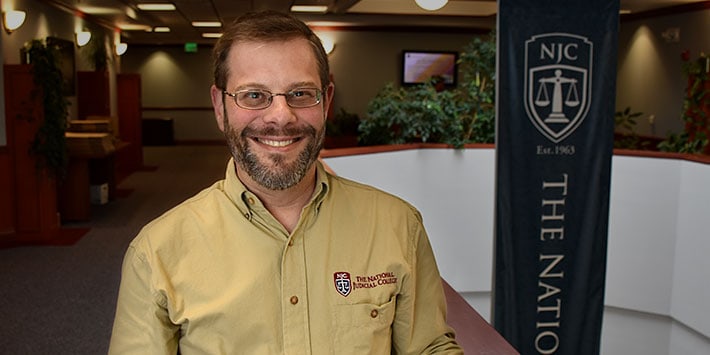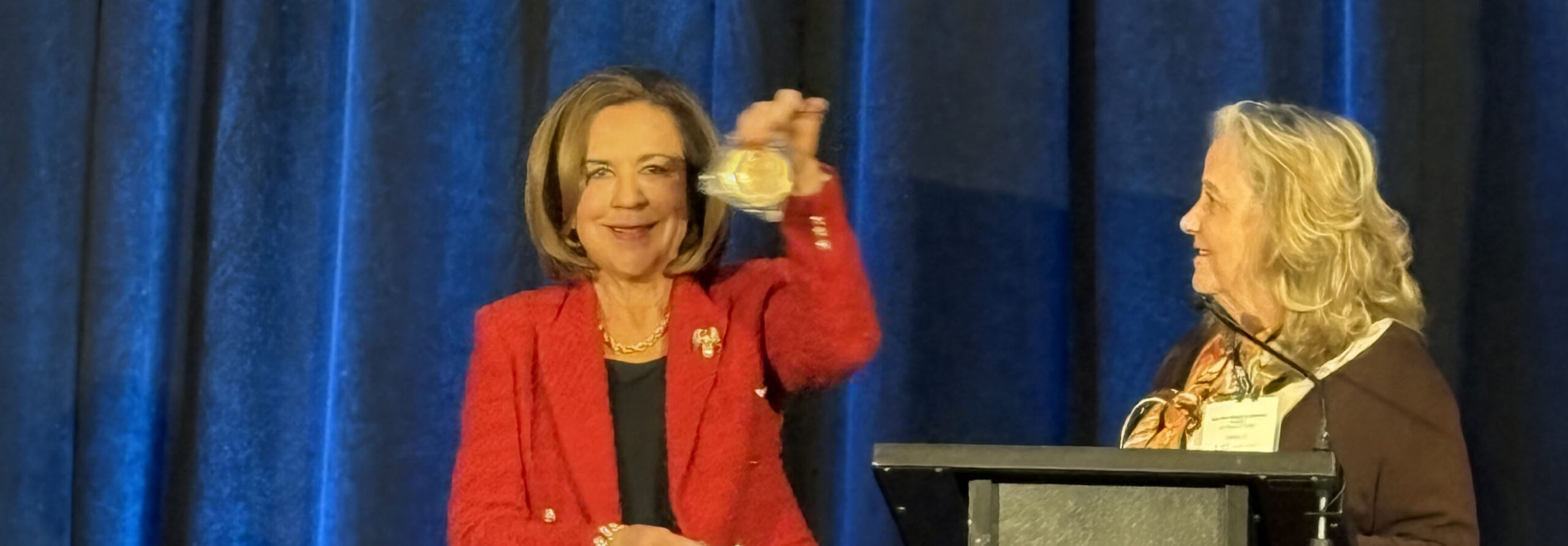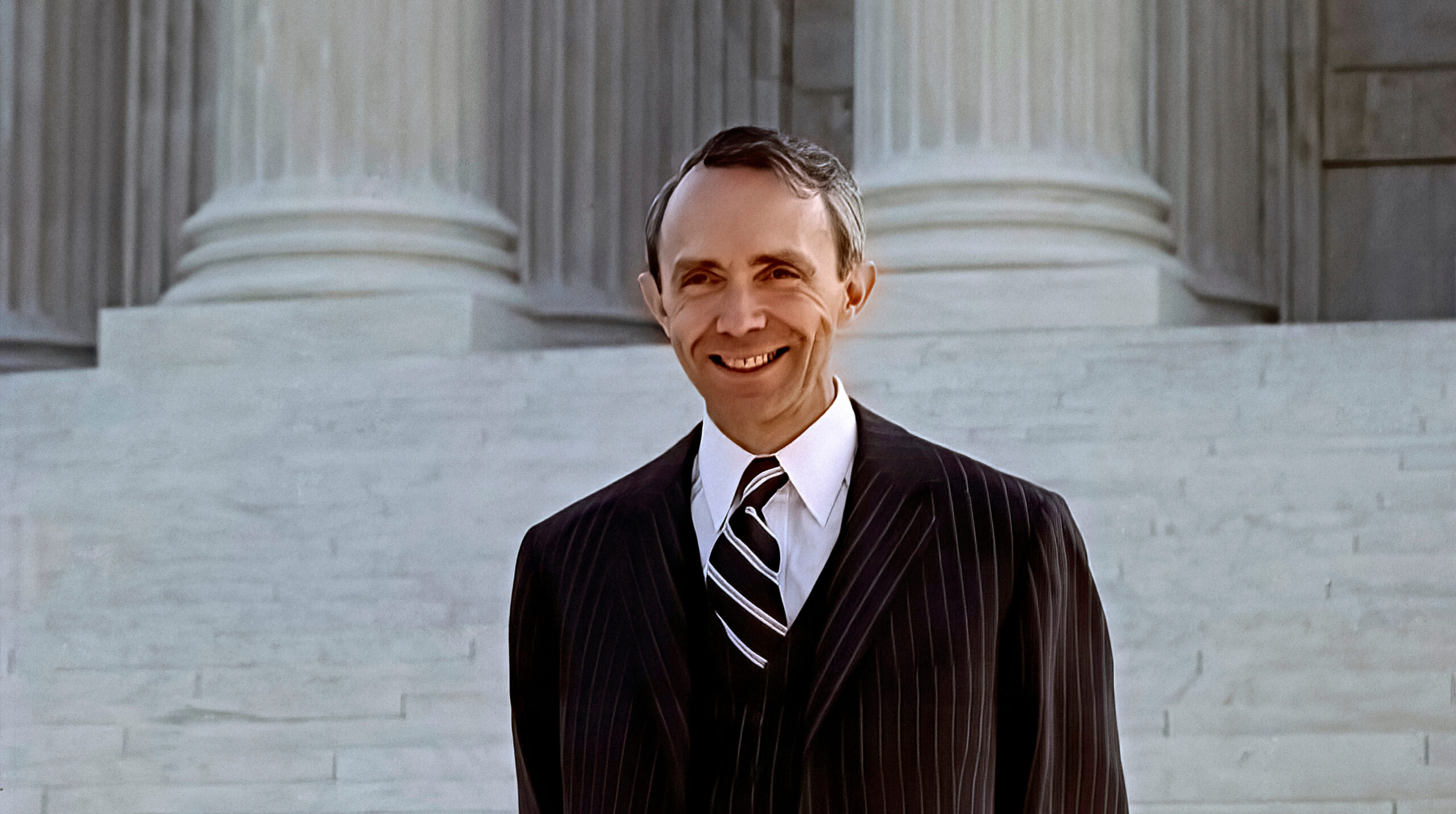

Judge Jurkowitz attended his first NJC course in 2002, and has been teaching for the College since 2007.
What is your legal/judicial background?
I graduated from the University of Arizona College of Law and began my career as a prosecutor, before becoming legal counsel for a number of county departments and elected officials. I moved on to serve as an ALJ for the Arizona Department of Transportation for six years before returning to the Pima County Attorney’s Office where I now supervise the Employment Unit. I also serve as a Judge Pro Tempore for the Arizona Superior Court and have previously served as a Hearing Officer for the Arizona Supreme Court, a Settlement Officer and Attorney Discipline Hearing Panel Member for the Arizona Supreme Court, a Justice of the Peace Pro Tempore, a Town Magistrate Pro Tempore, and as Vice-Chair of the Arizona Supreme Court’s Defensive Driving Board.
In what NJC course do you teach? What subjects do you teach within that course?
I have taught the Evidence Challenges for Administrative Law Judges course since 2007. I also previously taught Traffic Adjudication for ALJs and helped develop the Traffic Issues for Judges and Adjudicators course.
Do you teach elsewhere? If so, where? What subjects do you teach there?
I previously taught Criminal Law and Criminal Court Systems for the University of Phoenix.
What do you find to be the most challenging aspect of teaching judges at the NJC?
The most challenging aspect of teaching ALJs from different jurisdictions and agencies all across the country is that each state and agency has different laws, rules and procedures. However, it’s also fascinating to see what different approaches are to similar issues.
What aspect of teaching at the NJC do you enjoy most?
What I enjoy most is exploring concepts that might be new to some, or might be familiar, but can viewed from a different vantage point.
What do you find most rewarding about teaching at the NJC?
The NJC reaches judges all across the country. The Evidence Challenges course, while a good refresher for anyone, is especially important for new ALJs who have to address difficult evidentiary issues for the first time behind the bench. I am glad that we can be a helpful resource in preparing our adjudicators to make informed decisions.
What is the funniest thing that has happened to you in an NJC classroom?
In 2009, we presented the Evidence Challenges class to the Office of Medicare Hearings and Appeals in Cleveland. Unfortunately, the class coincided with the worst blizzard of the season and not only was class cancelled, but the city was shut down and all the government offices closed. Coming from Tucson, I had never experienced a “snow day” before.
What does The National Judicial College mean to you?
I attended my first NJC class as a new ALJ in 2002. The quality of the education far outstripped any CLE programs I had previously attended. The content was immediately applicable and helped me to become a better judge. I am proud to help provide that same experience to other judges and improve the quality of adjudication wherever we can.
Faculty Forum
News about and by NJC faculty members.
Learn More

The National Judicial College has awarded Missouri Supreme Court Judge Mary Russell with the Sandra Day O�...

Emeritus Trustee Bill Neukom (left) with former Board of Trustee Chair Edward Blumberg (right) at the NJC 60...

The National Judicial College, the nation’s premier institution for judicial education, announced today t...

The National Judicial College (NJC) is mourning the loss of one of its most prestigious alumni, retired Uni...

As threats to judicial independence intensify across the country, the National Judicial College (NJC) today...